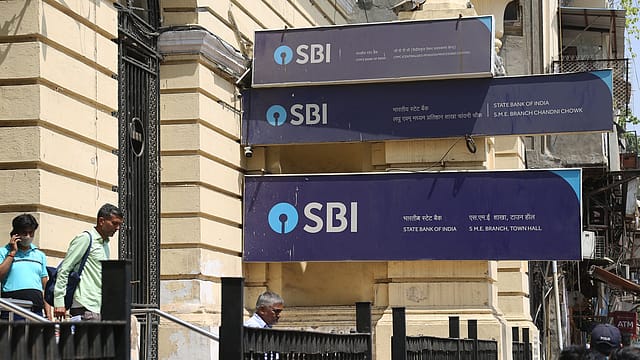Electoral bonds: Supreme Court warns SBI of 'wilful disobedience'
ADVERTISEMENT

The Supreme Court on Monday rapped the State Bank of India for seeking more time to disclose the information on electoral bonds, warning that it may be inclined to proceed against India's largest lender for "wilful disobedience".
"While we are not inclined to exercise the contempt jurisdiction at this time, we place SBI on notice that this Court may be inclined to proceed against it for wilful disobedience if SBI does not comply with the directions by the timelines indicated in this order," the top court says, ordering SBI to submit details of the now-scrapped electoral bonds scheme with the Election Commission of India by the close of business hours tomorrow.
The apex court dismissed SBI's plea seeking an extension of time to June 30, saying that submissions of SBI indicate that the information sought is "readily available".
The Supreme Court had earlier directed SBI to share the details of each electoral bond purchased, name of purchaser, denomination of electoral bonds, and details of each electoral bond redeemed by political parties including the date of encashment with the poll body by March 6.
The top court has asked the election commission to make this information public on its website by 5 pm on March 15.
In a landmark judgment in February, the Supreme Court struck down the electoral bonds scheme for violating the right to information under Article 19(1)(a) of the Constitution. The scheme was introduced through the Finance Act, 2017 by amending the Companies Act, the Income Tax Act and the Representation of People Act. The court also held these amendments unconstitutional.
January 2026
Netflix, which has been in India for a decade, has successfully struck a balance between high-class premium content and pricing that attracts a range of customers. Find out how the U.S. streaming giant evolved in India, plus an exclusive interview with CEO Ted Sarandos. Also read about the Best Investments for 2026, and how rising growth and easing inflation will come in handy for finance minister Nirmala Sitharaman as she prepares Budget 2026.
"The ability of a company to influence the electoral process through political contributions is much higher when compared to that of an individual," the top court said in its unanimous verdict on February 15.
"A company has a much graver influence in the political process, both in terms of the quantum of money contributed to political parties and the purpose of making such contributions. Contributions made by individuals have a degree of support or affiliation to a political association. However, contributions made by companies are purely business transactions made with the intent of securing benefits in return," the Supreme Court said.
Advocacy groups have criticised electoral bonds for facilitating quid pro quo. Corporates were able to secretly bankroll political parties under the scheme.
Electoral reforms nonprofit, the Association for Democratic Reforms (ADR) last week filed a contempt petition against India’s largest public sector lender for not adhering to the March 6 deadline of the Supreme Court for disclosing the details of electoral bonds.
SBI in its plea argued that the details of purchases of electoral bonds are not maintained centrally at any one place. "No central database was maintained. This was done so as to ensure that donors’ anonymity would be protected," the lender said.
